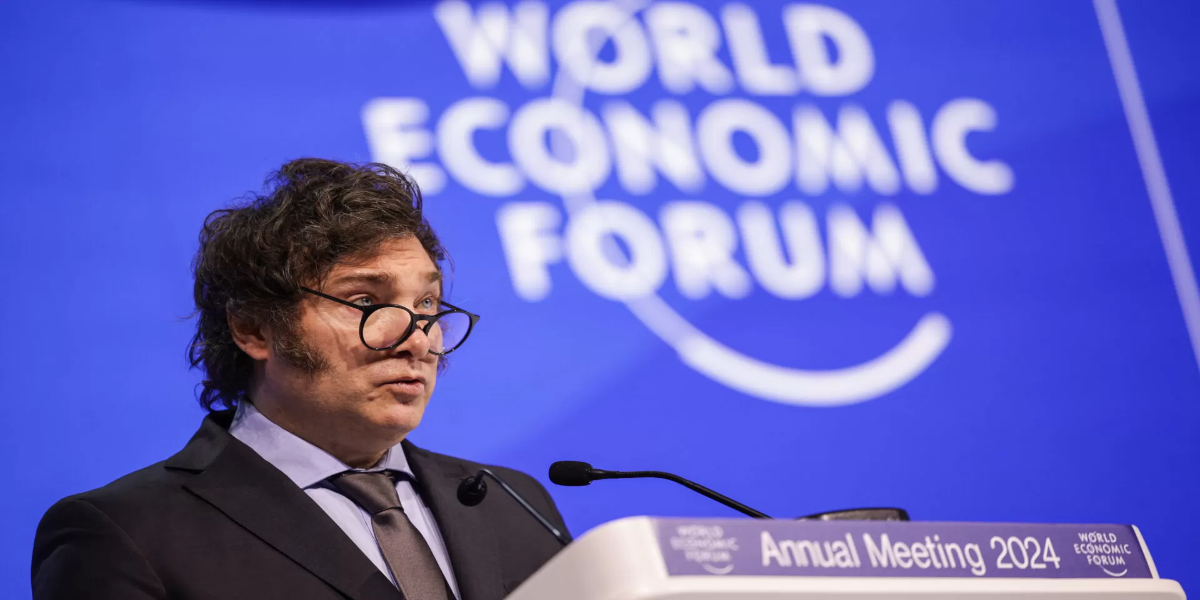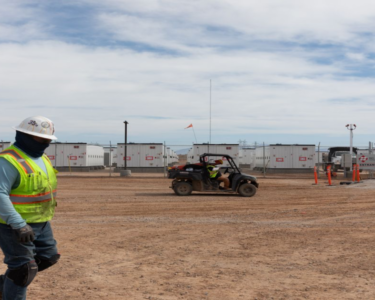At Davos, Milei champions the free market, challenging the global shift towards government overreach in the economy
In a fiery and unapologetic presentation at the World Economic Forum, Argentina’s President Javier Milei delivered a powerhouse defense of pure capitalism while taking a hard stance against all forms of collectivism. His discourse, laden with historical insights and sharp economic analysis, is a wake-up call, especially to American politicians from both parties who have long strayed from the true capitalist path, both in Washington and during campaign seasons.
Milei’s speech opened with a dire warning, drawing from Argentina’s own tragic experience with collectivist policies. Once a capitalist success story, Argentina’s descent into collectivism over the past century has led to its economic downfall, moving from a global economic leader to a mere shadow of its former glory. This is a stark reminder of the dangers of losing sight of free market principles and the ruin it can bring.
Milei’s message is vital. Regardless of the seemingly noble goals behind collectivist policies – be it environmentalism, social justice, or national security – and irrespective of their political branding – communist, fascist, socialist, or any other label – such policies ultimately damage those they purport to help.
Many in the United States might dismiss this lesson, given Argentina’s economic woes compared to America’s continued wealth. However, Milei’s cautionary tale is very much applicable here. Despite the United States branding itself as a free market economy, every sector faces increasing government regulation, inefficient taxation, and a bloated bureaucratic system. The economic strategies of both Democrats and Republicans have become alarmingly collectivist, reflecting populist and Peronist tendencies that undermine free market efficiencies. America, indeed, is veering dangerously down the “road to serfdom” that Milei warns against.
As an economist, Milei doesn’t just criticize; he passionately advocates for capitalism. He points to the Industrial Revolution as a defining moment in history, where capitalism catalyzed a leap from economic stagnation to explosive growth and poverty reduction. This historical shift is not just a testament to the efficiency of the free market but its profound impact on human life. Milei’s data underscores that the solution to persistent poverty and inequality isn’t in abandoning capitalism, but in leveraging its full potential more effectively.
Furthermore, Milei posits that economic growth fuels not only wealth creation but also peace and tolerance. It’s a compelling argument for more capitalist expansion.
Milei’s Davos address is a bold counter to the increasing global trend of governmental meddling in the economy. He stands for minimal government interference, advocating for economic freedom, property rights, and market-driven solutions. His vision is clear – prosperity is achieved through policies that empower individuals and businesses, fostering an environment ripe for innovation, entrepreneurship, and opportunity.
Culminating his address with a passionate cry of “Long live freedom, dammit,” Milei doesn’t just analyze history or economics; he calls to action. His message is clear: It’s time to reevaluate our economic policies, reaffirm our commitment to capitalist principles, and be vigilant against the proven failures of collectivism. Embracing true economic freedom, coupled with responsible governance, is the path to enduring prosperity and global advancement. Let Milei’s words in Davos be more than just a speech; let them be a clarion call for a return to genuine capitalism and the defense of liberty in these trying times.




